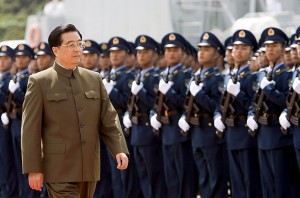Next week, Hu Jintao starts an official visit to Italy, the first for a Chinese president in 10 years. As with his predecessor, Jiang Zemin, Hu will have a chance to look first-hand at what was for millennia – from the Magna Grecia in the south to the Roman Empire to the Renaissance – the cradle of Western civilization. He will thus get a glimpse at the origin and development of the process of modernization – or “Westernification” – that China is embracing at the moment.
This, in a nutshell, is the significance of Hu’s trip to Italy. It means very little and very much: There is no huge political agenda but enormous philosophical significance. It would be a tourist trip for many heads of state, but for the People’s Republic of China (PRC), where the search for and fine-tuning of new theories is the soul of the political process, this could be a crucial inspirational stepping stone as the country prepares for the next generation of leaders and the political agenda of the 2012 Party Congress.
Italy managed to mold together modernization and tradition, and this is something that China has been trying to do on a grand scale in recent years, blending its past with modernization and also making the necessary leap to future developments.








